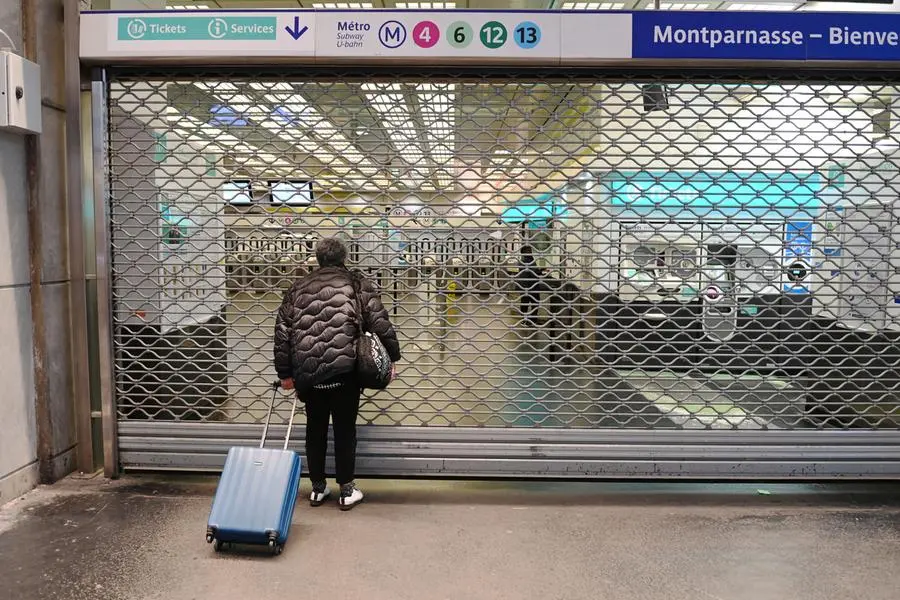PHOTO
Paris, France: Commuters in London and Paris scrambled for alternatives Thursday -- or simply stayed home -- as public transport workers went on strike for higher pay, the latest industrial action seeking relief from soaring prices in Europe.
Spreading labour unrest poses a problem for governments which are already spending billions trying to blunt the worst effects of rising prices, at least for the most vulnerable.
"I am very deeply affected by the strike," said 36-year-old Nicco Hogg in London. "I took my car, the train and now I have to cycle."
The action in Britain, by members of the Rail, Maritime and Transport (RMT) and Unite unions, follows several prior walkouts this year amid a long-running dispute over job cuts, pensions and working conditions.
In France, the strike aims also to ratchet up pressure on President Emmanuel Macron before he brings a controversial pensions overhaul bill to parliament, which would require millions of people to work longer before retiring.
"It's to show that if we want to take action, we know how to take action," Frederic Souillot, head of France's FO union, said ahead of the Paris strike.
The capital's public transport operator RATP said nearly every Metro line would be shut down or operating with only limited rush-hour service, and urged people to work from home or postpone trips if possible.
Many commuters appeared to heed the call, with the morning crush less chaotic than many feared, and the city's growing network of bike lanes saw a surge of cyclists under a bright autumn sky.
But the two main suburban rail lines called RER A and B, which connect central Paris with Disneyland Paris and the Charles de Gaulle and Orly airports, saw more severe disruptions.
Frequency of bus services were likely to drop by a third, while tram operations were expected at near-normal levels, the RATP said.
Authorities in London said the Underground system was "severely disrupted", with limited or no services running, and advised people to avoid trying to use the network.
Reports said many buses were packed to capacity and unable to pick up hordes waiting at numerous stops, while roads were expected to be more congested than usual.
- New CEO awaited -
French unions have staged strikes across several sectors in recent weeks seeking pay hikes or increased hiring as spiralling energy costs feed into widespread inflation.
Thursday's strike will also include a protest march in the capital in the afternoon that will shut down major traffic avenues.
But the Paris transport strike did not spill over into other sectors, with only the hard-line CGT union calling for general work stoppages that could match turnout of October 18, when authorities say 107,000 demonstrators turned out nationwide.
Unions representing the RATP's nearly 70,000 employees say they are feeling the pinch of soaring prices, but are also overstretched because of insufficient hiring, resulting in increased sick leave.
That has led to more service delays or lower frequency on busy metro lines in recent months, causing headaches for the system's roughly 12 million daily users.
The government is set to appoint former prime minister Jean Castex as RATP chief, with parliamentary panels giving their green light after questioning him this week.
"The most urgent issue... is the continuity and quality of service," Castex told lawmakers. "The heart of our job is to meet the expectations of our users."
© Agence France-Presse





















